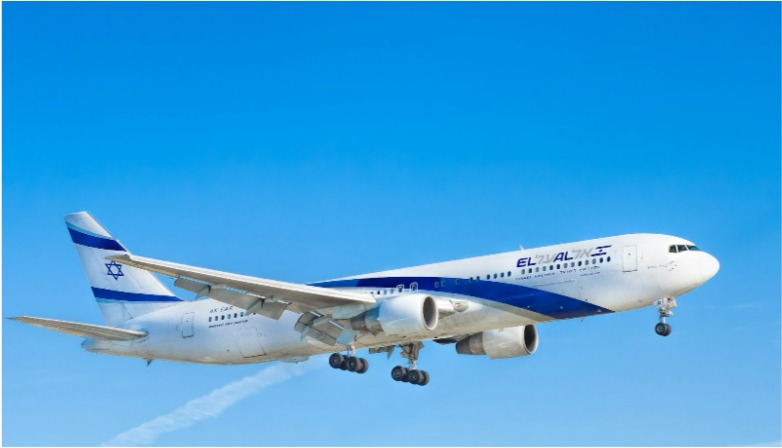Safe Travels: Understanding the Importance of Accident Coverage

When it comes to accidents, knowledge is power. There are reasons why you should never admit fault after a car accident, and why travelers should always take out an insurance policy. The latter isn’t only about protecting your wallet. It’s also about safeguarding your health and peace of mind. In this article, we explain why you should always take out accident coverage before going on a trip.
There’s A Risk Of Certain Types of Accidents
Think about road accidents, train derailments, or plane crashes. Travelers can sometimes find themselves involved in unexpected incidents that quickly turn business trips or dream vacations into nightmares. These events range from minor mishaps (like slips and falls) to more serious incidents (such as natural disasters). Being in unfamiliar surroundings can increase the likelihood of accidents. This is because travelers may not be aware of local hazards, safety precautions, or road rules. Additionally, outdoor activities like hiking, climbing, or water sports pose their own set of risks.
If you were injured because of someone else’s negligence, you may be able to claim financial compensation. This could be achieved by submitting an insurance claim or taking legal action. Let’s suppose you were injured in the US state of Colorado. The websites of Denver car accident attorneys will let you ask questions or request free case evaluations online. You can view helpful videos and client testimonials, and learn about previous verdicts and settlements. Legal help can be provided for accidents involving cars, bicycles, motorcycles, semi-trucks, and more.
There’s Access To The Right Medical Facilities
When planning your trip, it’s crucial to research the availability of quality medical services at your destination. If you already know about nearby hospitals or clinics, it can save you precious time in getting appropriate care. Language barriers and unfamiliar healthcare systems can compound an already stressful situation during an emergency abroad.
That’s why it’s wise to choose destinations with English-speaking healthcare providers. If the facilities can cater to international travelers, it’ll ease communication and help ensure proper treatment. Additionally, you should study the level of care available in different regions. This can help you make informed decisions about the type of coverage you need.
Emergency Medical Evacuation
This service plays a vital role in transporting individuals from remote locations, and rescuing them from areas with limited medical facilities. Imagine finding yourself in the middle of nowhere, facing a sudden health crisis – with no nearby hospital or clinic. This scenario is more common than we think. Accident victims need to be urgently taken to advanced care centers that are equipped to handle complex cases.
This level of support is invaluable in critical situations, where time is of the essence in providing urgent interventions (in fact, it can be a matter of life and death). Accessing specialized medical teams and equipment can significantly improve the prognosis for patients requiring immediate attention. These services ensure swift transport to appropriate medical facilities, and also provide expert care en route. As we’ve just said, this minimizes risks and maximizes survival rates.
Factors To Consider When Selecting Coverage
Before taking out insurance, it’s crucial to consider your individual needs and lifestyle. Think about the activities you engage in regularly, and assess the level of risk associated with them. Look at your travel itinerary, planned excursions, and methods of travel. Additionally, look into the extent of coverage offered by different companies and policies. This way, you can find the best deal, and make sure the coverage aligns with your specific requirements. Another important factor to consider is the provider’s reputation and reliability. Do some ‘homework’ on the insurance companies you’re considering. Read reviews from other policyholders to gauge their satisfaction levels.
Was it easy for them to speak to someone, were the companies willing to pay out, and how quickly did they do this? Also, take a close look at the terms and conditions of each policy. Policy limits refer to the maximum amount an insurance company will pay out for a claim. It’s important for travelers to carefully review these, to ensure they have adequate coverage in case of an emergency. Exclusions, on the other hand, are specific scenarios or circumstances that aren’t covered by the insurance policy. Common examples include pre-existing medical conditions, high-risk activities like extreme sports, or travel to certain dangerous destinations.

International Travel Considerations
It’s essential to understand that healthcare systems vary drastically from country to country. As a result, this can impact the level and type of coverage you receive while traveling. For instance, some countries may have universal healthcare, while others rely more on private insurance or out-of-pocket payments. This distinction can affect the quality of care you receive, and the expenses you might incur during an emergency.
As we said previously, language barriers and cultural differences can play a significant role in accessing appropriate medical care overseas. Navigating a foreign healthcare system can be challenging if you don’t speak the local language, or are unfamiliar with their customs. This is why you should potentially invest in comprehensive coverage for medical emergencies, including repatriation in severe cases.
Steps To Take In Case Of An Accident
In this situation, it’s crucial to stay calm and assess the situation immediately. Prioritize safety by ensuring that all individuals involved are out of harm’s way, and call emergency services if necessary. Once everyone is safe, document the incident with photographs. Also, exchange contact information with other parties (and witnesses) as this will help with the claims process.
You should also seek medical attention (even for seemingly minor injuries) as some symptoms may appear later on. Inform your insurance provider promptly about the accident. Be transparent and provide factual details of the incident. If you cooperate fully with any investigation, it’ll assist in resolving the matter efficiently.
If you fully research the type of coverage you need, you’ll be able to find the right travel insurance policy. It’ll be perfectly suited to your circumstances, maximizing your peace of mind. In turn, you can travel without fear, and savor each moment of the experience.



